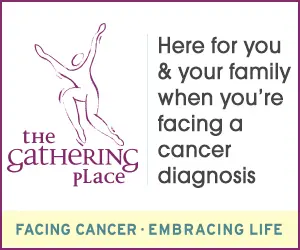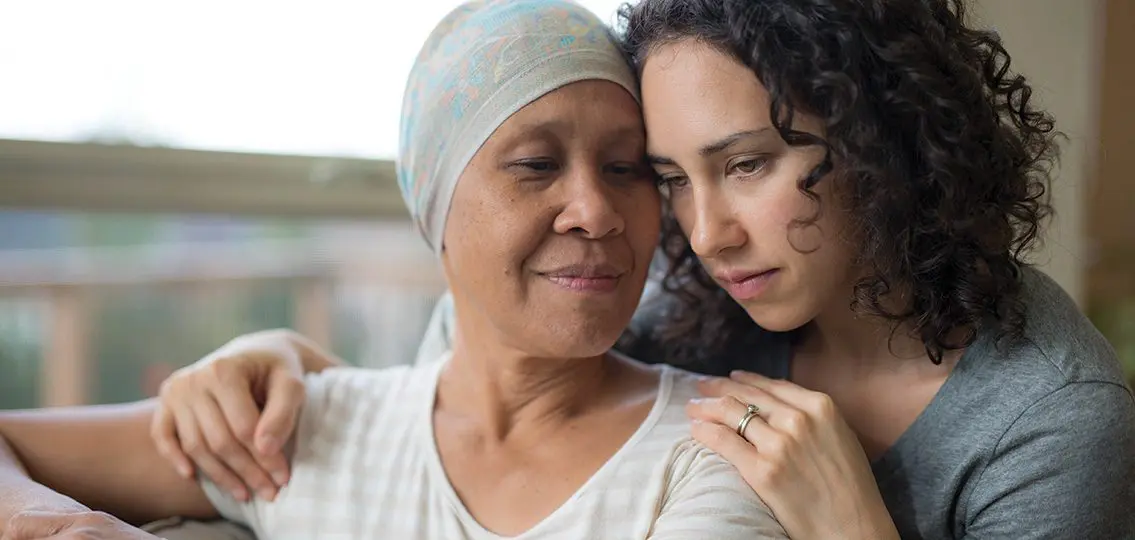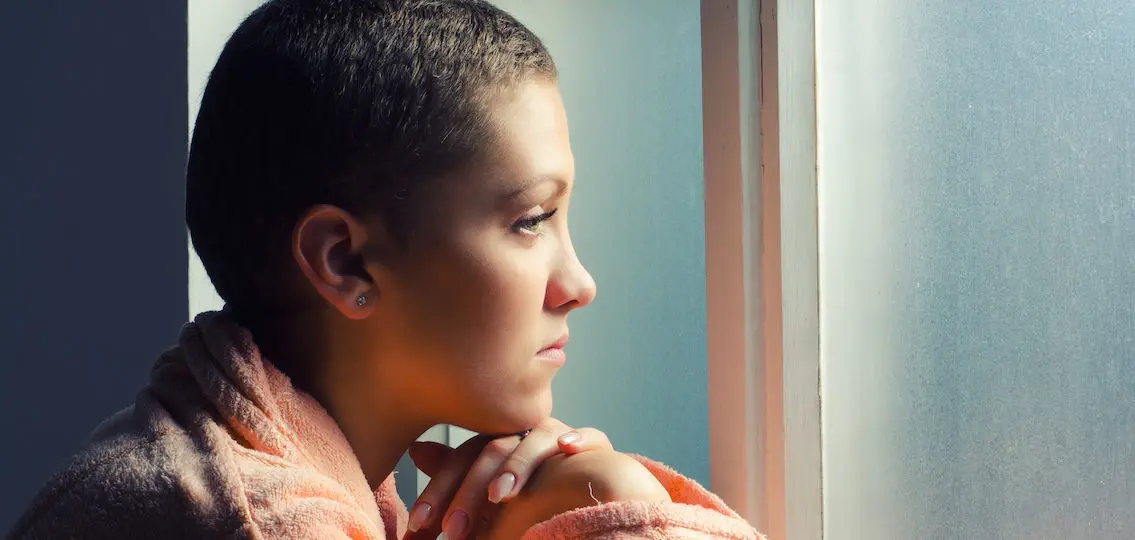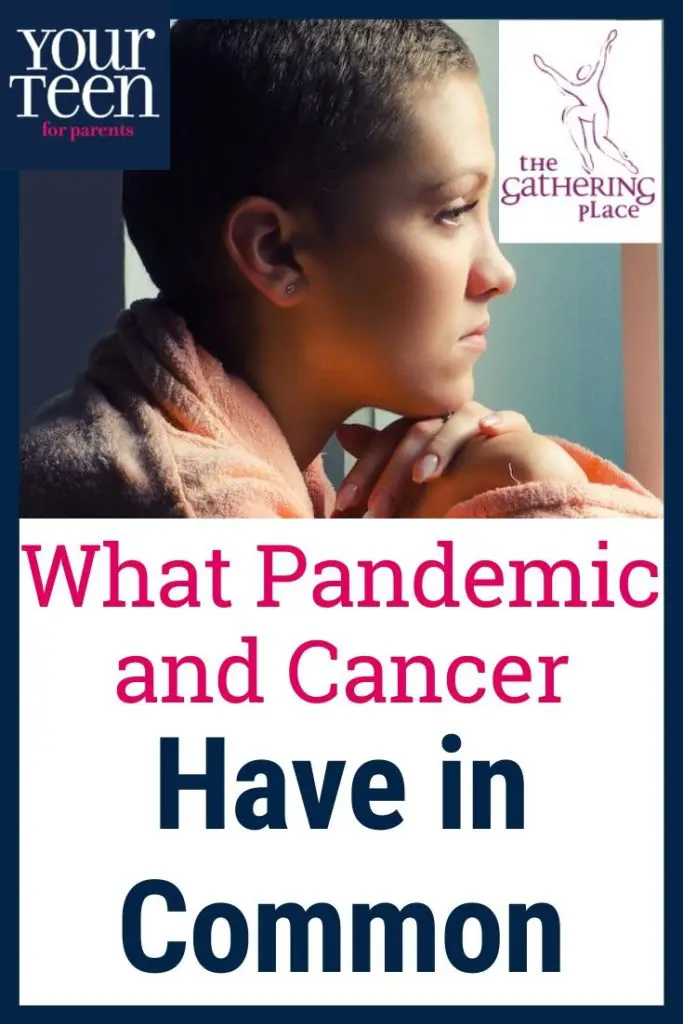Casey Durkin is a clinical social worker and the director of Children, Teen, Young Adult, and Family Programming at The Gathering Place in Cleveland, Ohio.
Q: What’s it like for kids who have dealt with cancer who are now experiencing this pandemic?
Durkin: It feels similar, particularly for those who’ve had cancer. They feel like it’s almost a deja vu. I’ve already done this. And now the rest of the world is catching up to me now. You know what it’s like to be quarantined? I was quarantined. And for kids who have had a parent or grandparent with cancer, they have had a lot of things cut back. Sure, they could go to school, but a lot of extracurriculars had to be eliminated. They had to be very careful about bringing germs into the house and making sure everything was wiped down all the time, because when somebody has cancer, they become high risk because they’re immunodeficient.
| [adrotate banner=”169″] |
One more similarity is that when teenagers have lost a parent to cancer, they are unsure as to what’s coming down the road. Is it OK for me to go away to college? Well, in today’s world, everyone’s thinking I don’t know that I’m going to have a chance to go away to college.
Q: Is there a kind of post-traumatic stress that that creeps up for some of these kids for the kids and the parents?
 Durkin: It’s really important for parents, whether cancer is involved or not, that we always have to keep our emotions in check. Whether it is PTSD from the cancer experience, which is certainly very valid, or parents who haven’t had cancer who are experiencing major losses, parents get really into a lot of those developmental milestones like graduating middle school, graduating high school, getting those letters of acceptance, going prom dress shopping or picking out a hairstyle. And it’s a major loss for parents as well. And they need to keep their feelings in check so that they can allow their teen to experience the loss and have that validated just like with cancer.
Durkin: It’s really important for parents, whether cancer is involved or not, that we always have to keep our emotions in check. Whether it is PTSD from the cancer experience, which is certainly very valid, or parents who haven’t had cancer who are experiencing major losses, parents get really into a lot of those developmental milestones like graduating middle school, graduating high school, getting those letters of acceptance, going prom dress shopping or picking out a hairstyle. And it’s a major loss for parents as well. And they need to keep their feelings in check so that they can allow their teen to experience the loss and have that validated just like with cancer.
Q: How do you talk to parents and then how do you encourage parents to talk to their kids?
Durkin: We really help parents think about sitting down with their youngster and saying, “Hey, I know life is different. What can we do to keep this special? And what can I do with you?”
Q: What are you seeing with the teen groups that you’re working with right now? Are you hearing anything that you’re surprised by?
Durkin: I’ve actually been really surprised by teens’ insight into what’s going on. I actually did a quick survey last night and we have a phenomenal emerging leader group of kids who are either they’re cancer survivors or have had a parent with cancer. I was really struck by the amount of sadness they’re feeling, sadness over waste, anger. I had one teen respond, “I’m so worried because I know she’s immunodeficient and if she gets this virus, I don’t think she can survive.”
| [adrotate banner=”141″] |
Q: Are you finding that these kids who have been touched by cancer are taking all of the restrictions very seriously?
Durkin: They are realistic. This is serious and they’re not as much in denial that this can’t touch me or this can’t touch my home. They kind of skipped a little bit of adolescence because they were forced to grow up sooner.
Q: What else are you seeing from the survey?
Durkin: A hundred percent of the kids said that they’re currently experiencing the loss of hanging out with friends. And that’s no surprise, because teenagers and college students are very social beings. They certainly miss school. They’re missing spring sports. Then some of them are missing going to church and synagogue. And lastly, some of them have jobs and even they’re very worried. Another thing that was really touching for me is how many are concerned about the world beyond their own homes. They’re worried about people losing jobs, people losing incomes. How will this affect families as well as how will this affect me and how will I be different? Will I get the same education I need to get into the college or to go back to school?
Q: And the hardest part as a parent is that we have no answers for those questions.
Durkin: What’s most important is to be honest with that. And I think that’s another parenting point: be as genuine as you can. To say “I have never experienced this in my lifetime. I don’t know what this is like. I can’t imagine the losses that you have. And I wish I could change this for you. Let me know if I can be of help.”
Q: Where do families who have already been through so much as a family due to cancer find resources?
Durkin: The Gathering Place is available nationally in this current pandemic. I send an email every day to our parents with little snippets. We’ve moved everything to the virtual realm so anyone can visit touchedbycancer.org. Parents and teenage or college kids can access all of our programs, our support groups, our education programs, cooking classes, exercise classes, tai chi lessons. And everything at the Gathering Place has been and always will be free. And that’s just because we have very generous donors.
Q: And you have some webinars coming up.
Durkin: We have a series of town hall meetings coming up with great speakers. They’re all on our website.
Q: You mentioned breathing. How do you do a breathing exercise?
Durkin: Think about your favorite scent. Kids come up with everything from lots of herbs, basil, lavender to the dirt on the pitcher’s mound. Chocolate chip cookies right out of the oven. Maybe fresh bread right out of the oven. imagine that scent and you’re breathing it in, but you’re breathing it in through your nose as if you’re smelling it. And you’re going to breathe it in and hold it. And you’re going to exhale and have your exhale be longer than your inhale. And I think it’s important to do 10 of these. 10 is not even going to take your 60 seconds. And it really allows parents, teens, college kids, everybody to kind of get just resettled, re-ground, and be in that driver’s seat.

When “I” is replaced with “we” even illness becomes wellness. And that’s a very old quote from Malcolm X.





